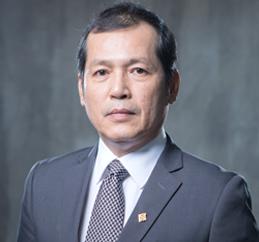The duties and responsibilities of the Board of Directors are as follows;
- Ensuring that the directors’ guideline is in compliance with the Myanmar Companies Law 2017,
issued by the Directorate of Investment and Company Administration (DICA) of Ministry of
Investment and Foreign Economic Relations (MIFER) of the Republic of the Union of Myanmar.
- Supervising and guiding the tasks of realizing the missions stipulated in the Company
Constitution.
- Adopting the general work guideline policy in conformity with the following points in carrying
out the functions of the company.
- The realization of the defines missions
- Meeting the shareholder’s objectives
- Guiding and supervising efficiently in conducting the affairs and functions of the organization
in continuously rewarding shareholders with fair dividends.
- Deciding the volume of trade and services in preparing to realize the missions.
- Adopting a wide array of directives to enable the key branches of the company to carry out their
management functions within the framework of general policy.
- Ensuring that the executives and officers of the company are maintaining the reputation that
they have achieved in doing fair trade or providing services in accordance with the set standard
and integrity.
- Persuading the Chief Executive Officer and management team to continuously supervise and control
the affairs and functions of the Company taking into account the reports send to the Board of
directors, Financial Statements and KPIs; and making a comparison between the situation expected
under the approved trade volume and policy and the current situations.
- Ensuring sufficiency of the funds for capital expense and current expense for the approved trade
volume and future extended operations.
- Ensuring that the legal duties of the organization have already have been appropriately
shouldered and that all the functions are in accordance with the company constitution, the
purpose of the decisions made by the shareholders at the annual general meeting and the
emergency general meeting.
- Continuously supervising the following
- Continuous supply of resources
- The assets of the shareholders
- The capital and capital assets
- Continuous supervision of the financial situation for making profits.
- Keeping the property of the company safe and arranging sufficient substitution for the expired
or outdated property of the company.
- Approving the capital expense, calculating the annual profit and loss of the company, approving
the purchase and sales of land, buildings and other key materials which involve the issue of
copyrights and money raising.
- Assigning the Chief Executive Officer to modify the policy into a clear work guideline and board
of directors must check the functions under the modified work guidelines are in line with the
policy and the aims of the BOD.
- Ensuring that the Chief Executive Officer has generated and is controlling a firm management
procedure and that they share the responsibilities with the Chief Operating Officers or the
management systematically and properly.
- Approving the appointment of senior officials and setting their salaries and service rules.
- Ensuring continuous access to economic information that may have impact on the operations of the
Company at present and in the future.
- Ensuring the adequacy of appropriations for the technical development, volume of trade,
financial situation, management competence and comprehensive management chain.
- Ensuring sufficient efforts for the technical development and policy changes amidst the progress
in new technologies.







